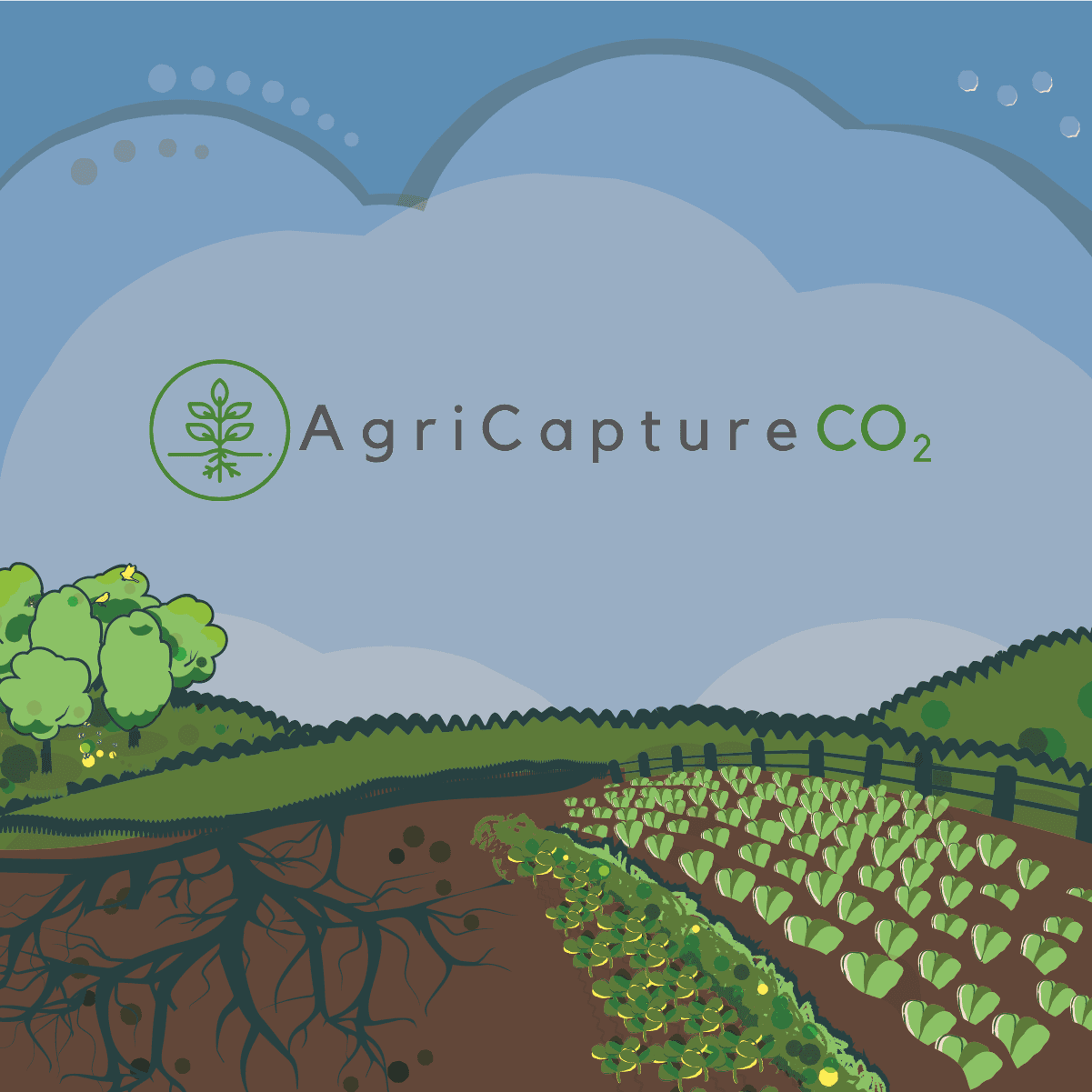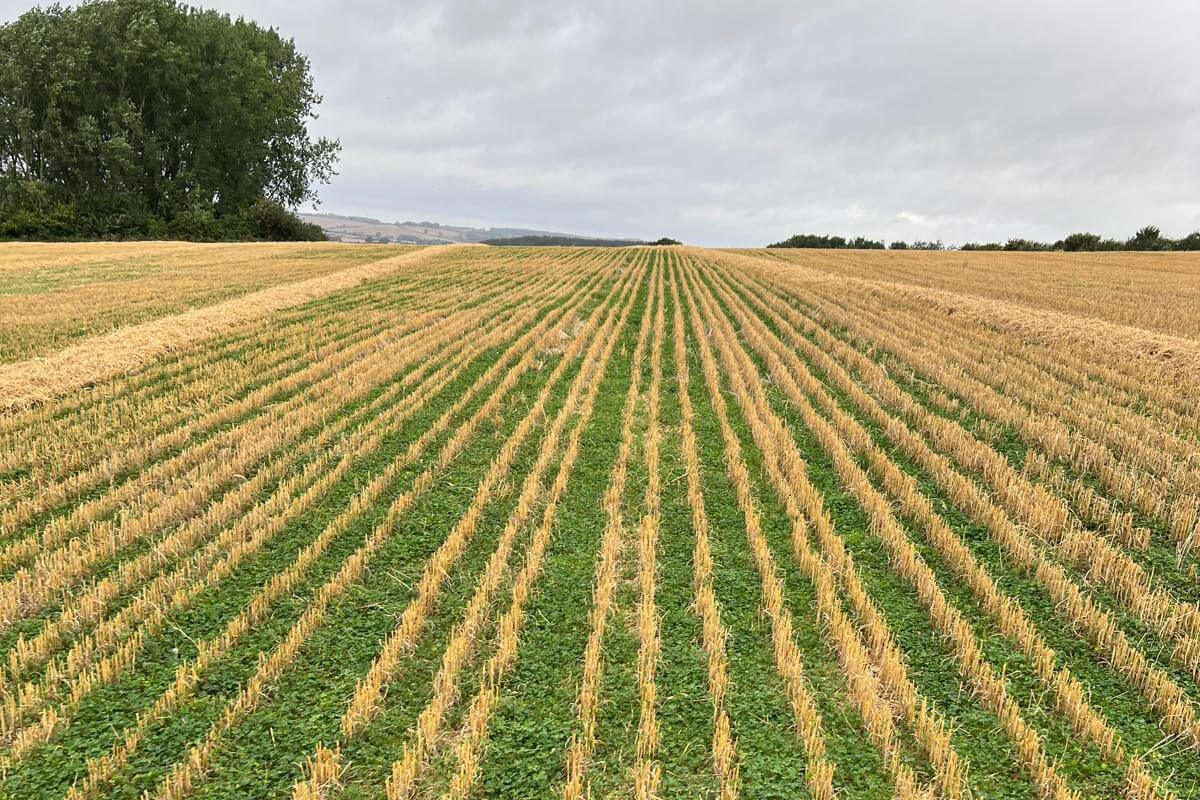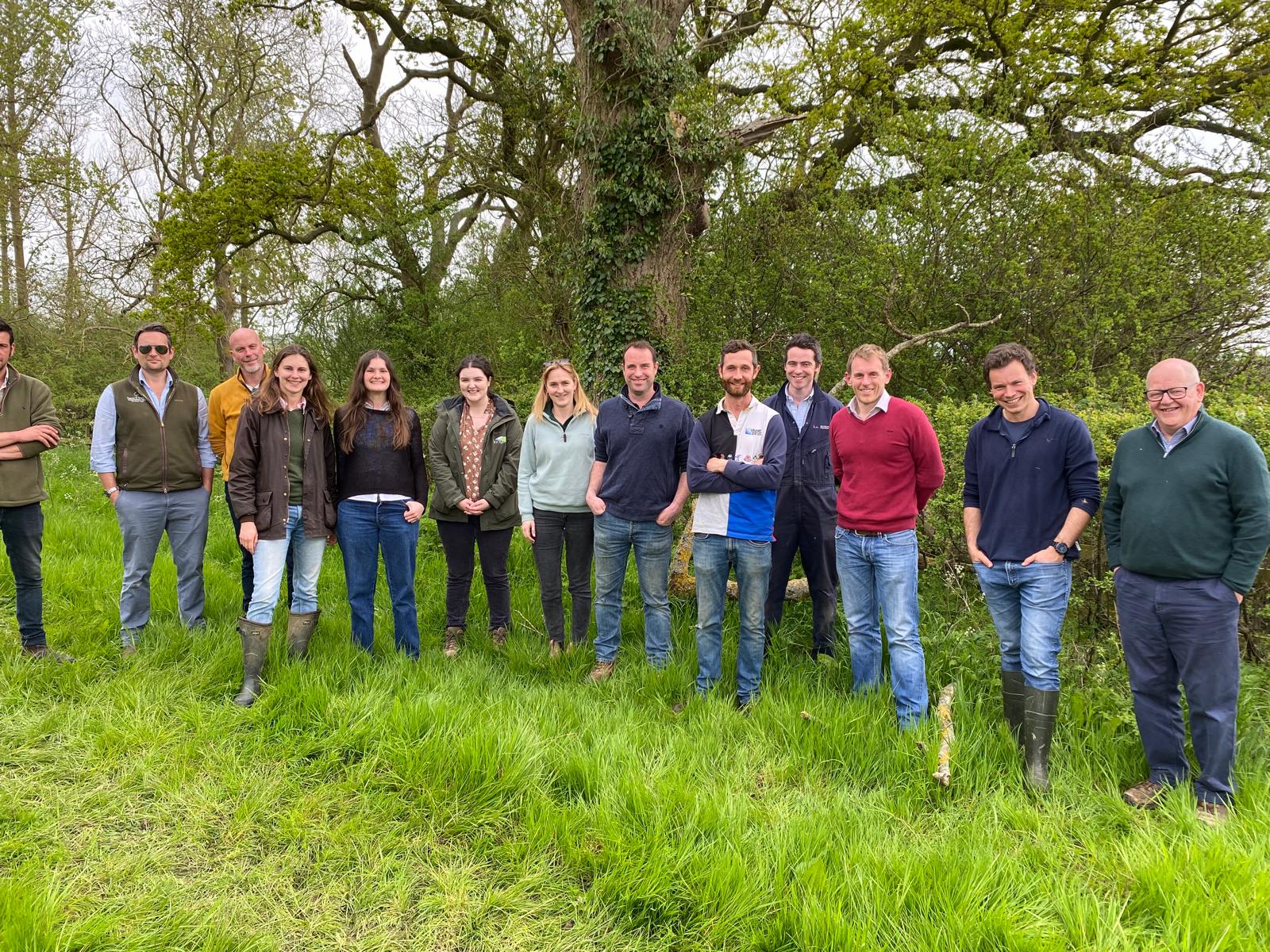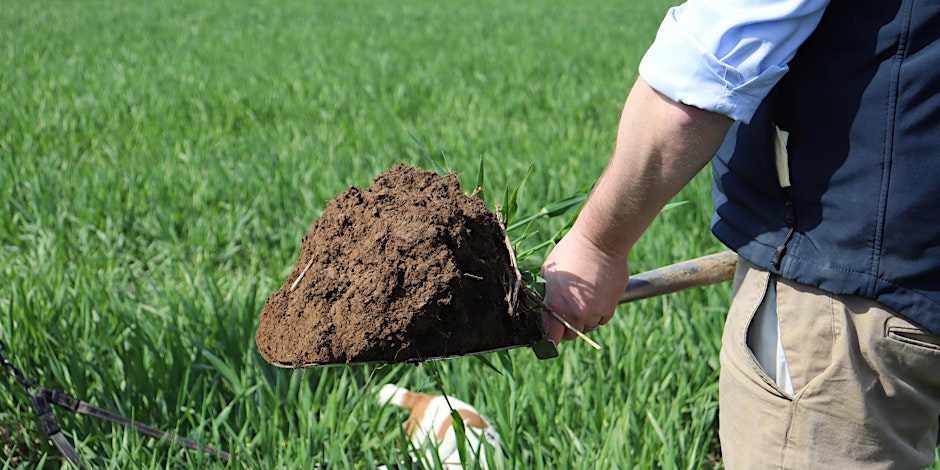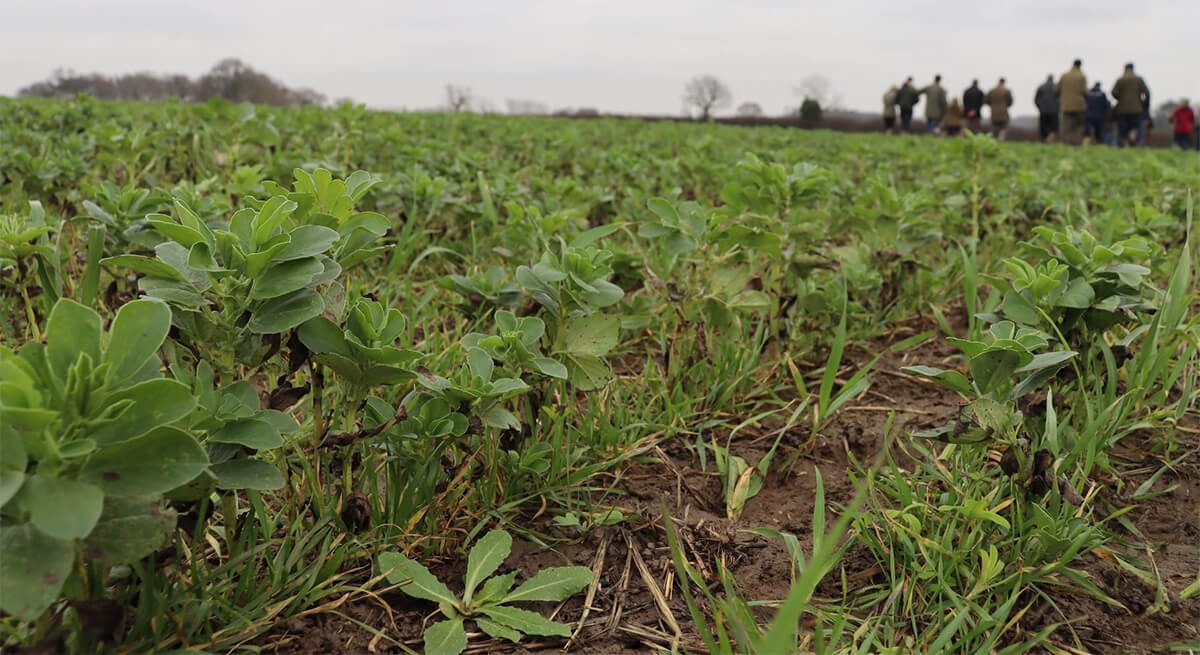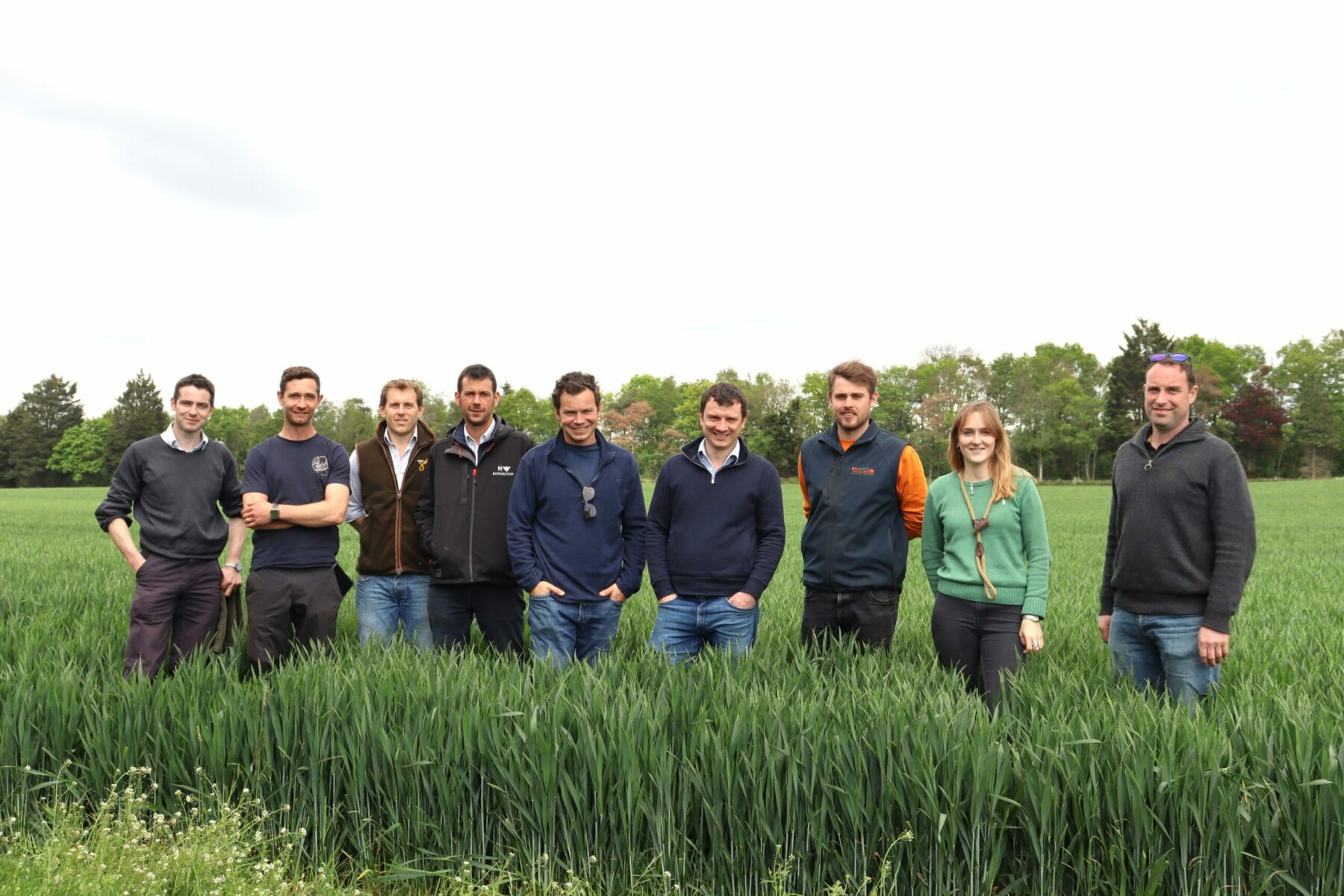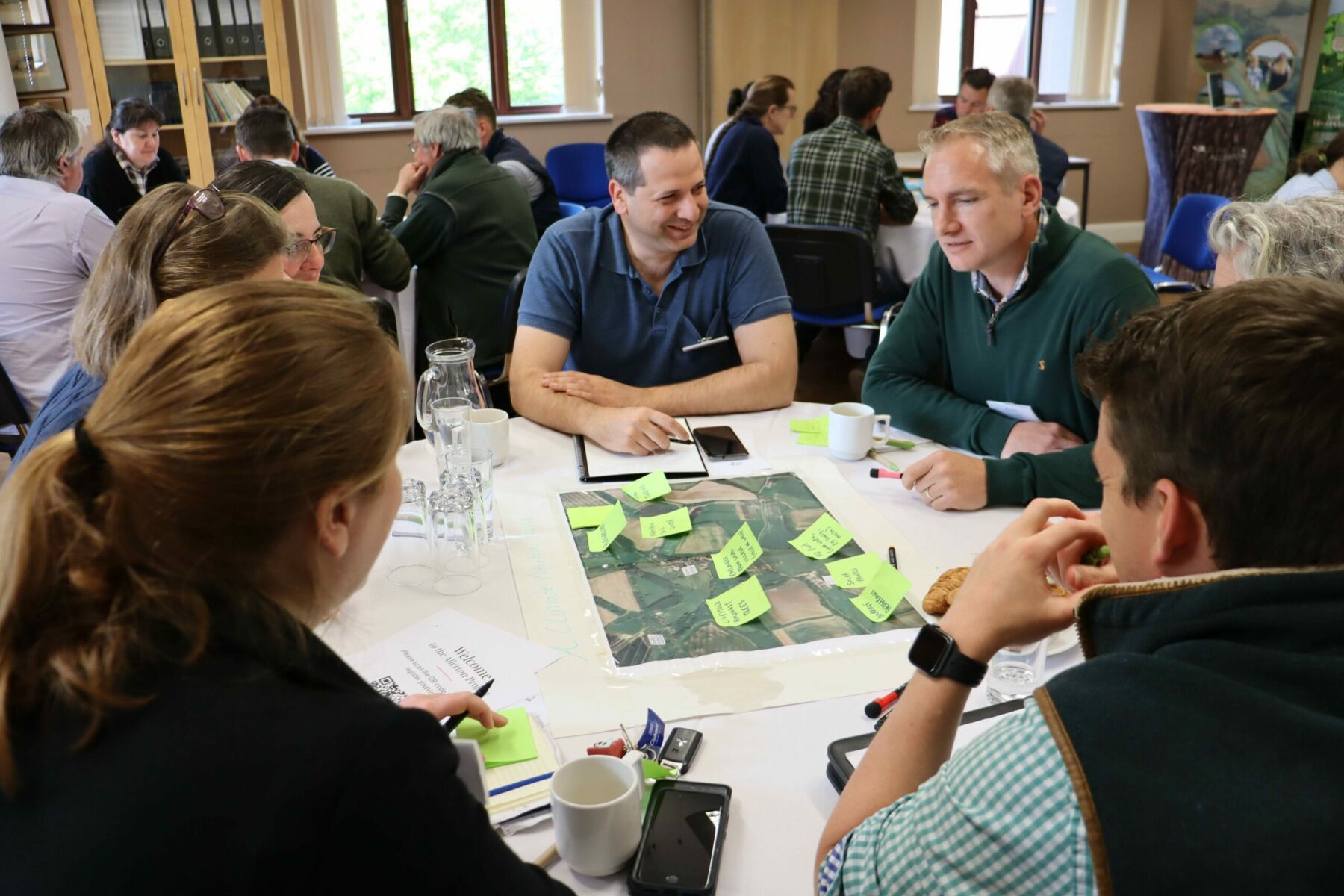In December, the Allerton Project organised a 2-day Winter Event in Suffolk, which involved a range of activities from demonstration events to factory visits and workshops.
First on the agenda was a visit to Tom Jewers farm (G.D. Jewers & Son), who is one of the lead commercial farms (LCFs) in the UK Cereals I3S. Tom hosted a demonstration event on his 395 ha family farm titled ‘Low-emission fertilisers in Climate Neutral Farming’. During the event, Tom introduced some of the measures he his implementing on his farm to reduce reliance on artificial fertilisers. These measures include:
- Application efficiency – participating in nitrogen response trials to improve nitrogen use efficiency (NUE)
- Trialling fertiliser innovations – applying sugary products such as Coca-Cola and molasses at drilling to boost crop performance
- Use of available technologies – optimising fertiliser application by making use of available technologies such as Messium hyperspectral satellite imager
Event attendees also heard from Richard Ling, another one of our LCFs involved in the project. Richard farms 400 ha in Norfolk and during the event presented his own measures for reducing reliance on artificial fertilisers on his farm:
- Use of low carbon alternatives – trialling cocoa-shell fertiliser made from chocolate factory waste
- Trialling fertiliser innovations – trialling the potential of seaweed-based bio-stimulants to improve plant performance and increase soil health
- Use of available technologies – optimising fertiliser application by making use of available technologies such as Messium hyperspectral satellite imagery
As part of the project, each I3S is required to host two blended learning events during which attendees are given the opportunity to acquire knowledge through a variety of methods, e.g. indoor presentations, outdoor farm walks, interactive discussion/activities, online components etc. To fulfil this requirement, the Allerton Project produced a microlearning resource which summarises some of the topics and ideas that were discussed during the ‘Low-emission fertilisers in Climate Neutral Farming’ event. The resource was shared with attendees a week after the event and can be found here:
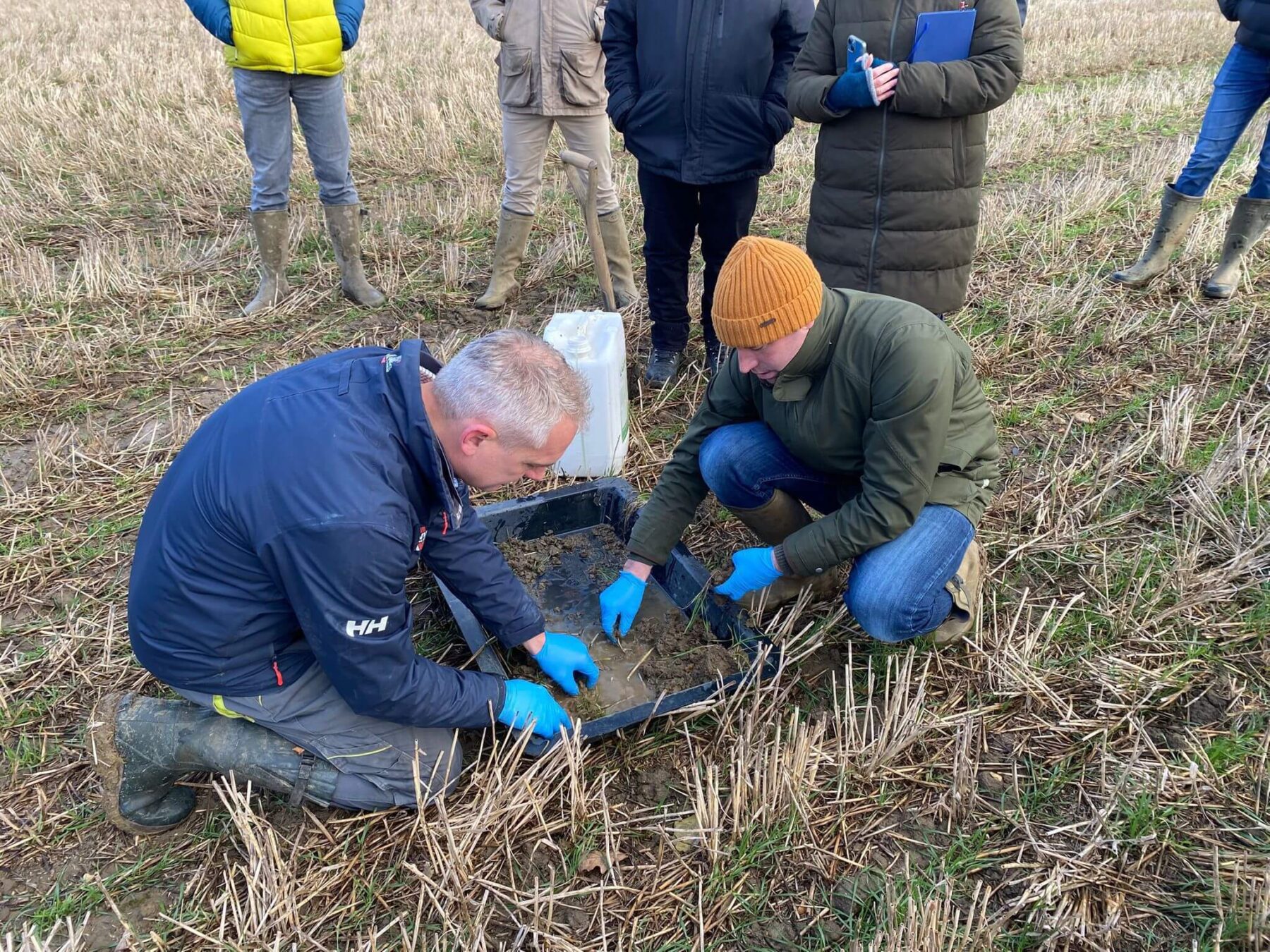
Figure 1.
During the ‘Low-emission fertilisers in Climate Neutral Farming’ event, Tom and Richard took the group on a farm walk where we had a look at rooting in one of Tom’s trial fields.
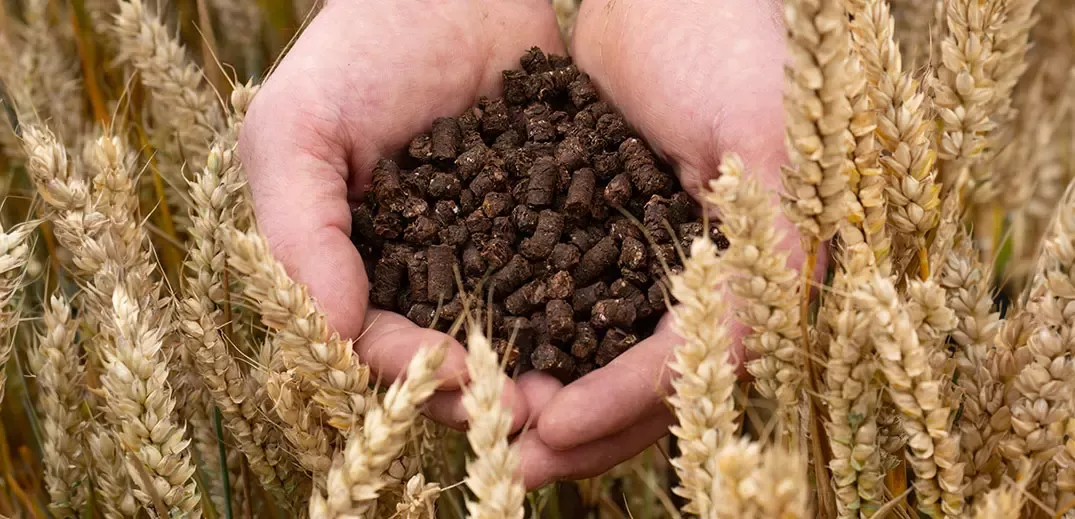
Figure 2.
Richard Ling is involved in an ongoing project with Nestlé, trialling low-carbon cocoa-shell fertiliser made from chocolate factory waste, and evaluating its performance in terms of crop production, soil health and greenhouse gas emissions.
As part of the 2-day Winter Event, the Allerton Project also organised two visits exclusively for the farmers in our LCF network. The first visit was to the Kings Crops Sorting Facility in Diss. During this visit the farmers had the opportunity to learn about:
- The development of seed and cover cropping in the next five years
- How Kings Crops source their seed
- Seed testing and certification measures
- Seed packing and distribution
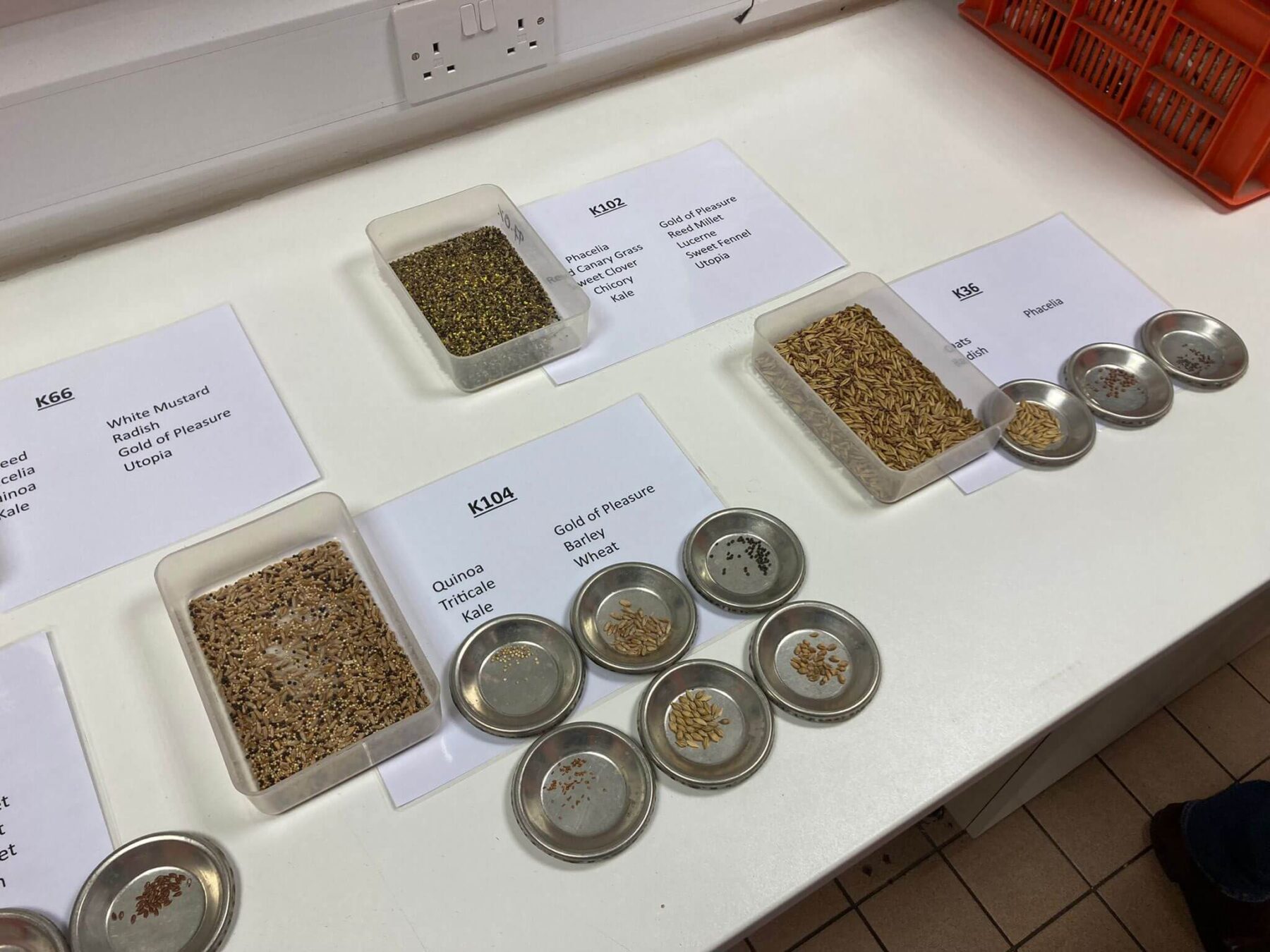
Figure 3.
The farmers visited the lab to learn about seed testing and certification.
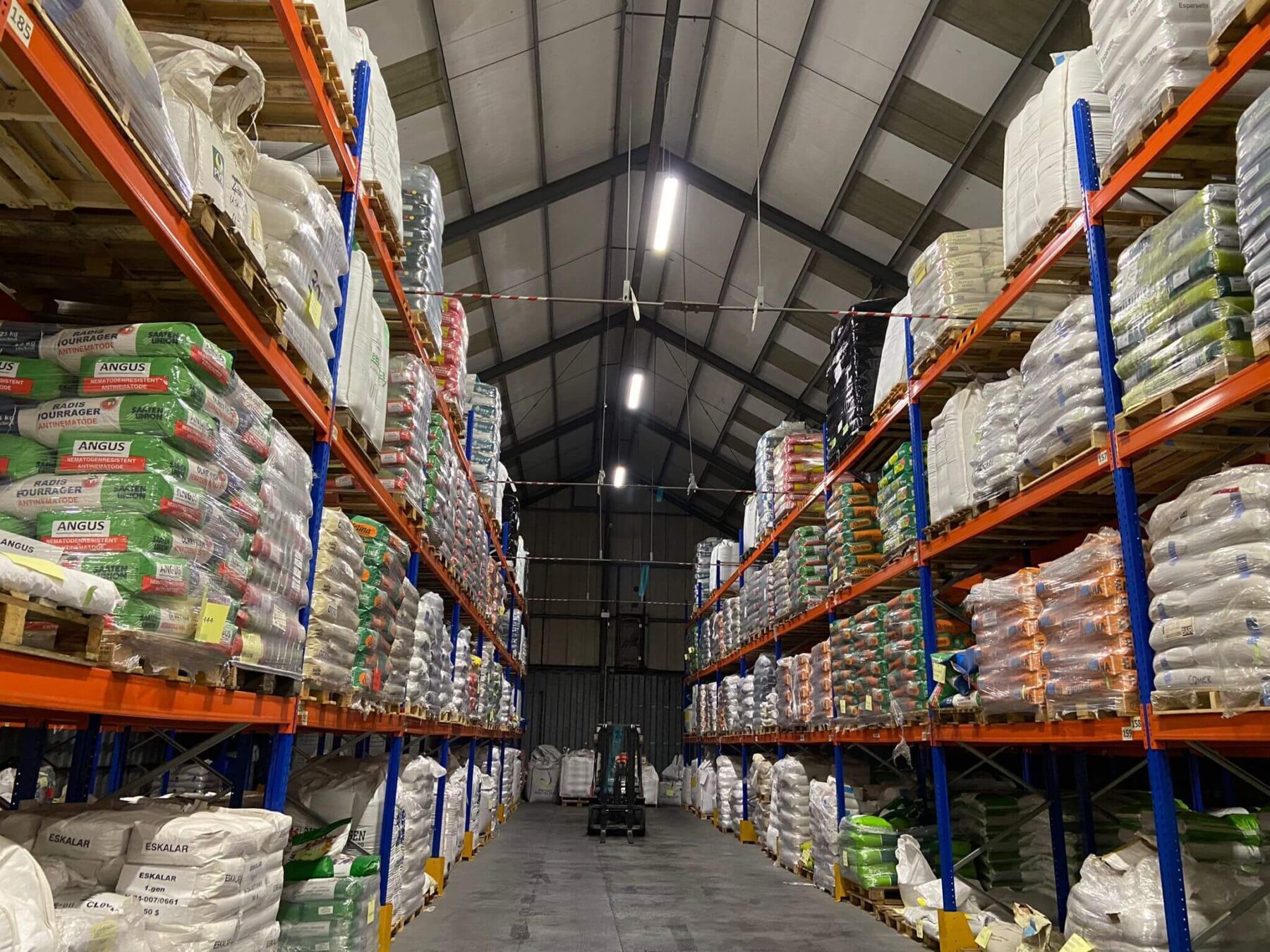
Figure 4.
The farmers visited the packing plant facility.
The second visit the Allerton Project organised for the LCF farmers was to Nestlé Purina Pet Care factory in Sudbury. During this visit the farmers were given a tour of the factory to see how some of their cereals are used in a variety of different pet food products. Purina presented some of their commitments to regenerative agriculture. The group also discussed the challenges of producing food in a less carbon intensive, more environmentally friendly way but being paid the same for it.
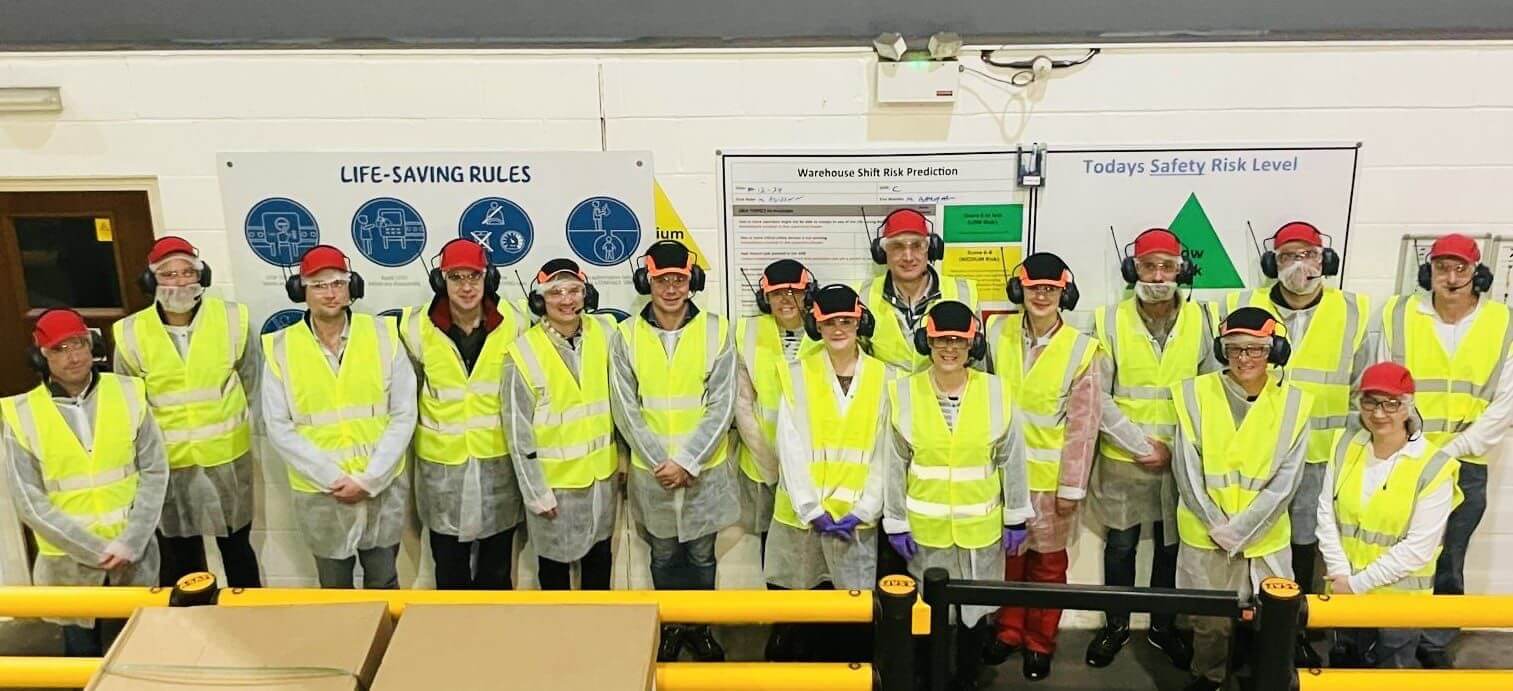
Figure 5.
The group head to toe in PPE (personal protective equipment). Many of us were surprised at the level of detail that goes into food for our pets!

